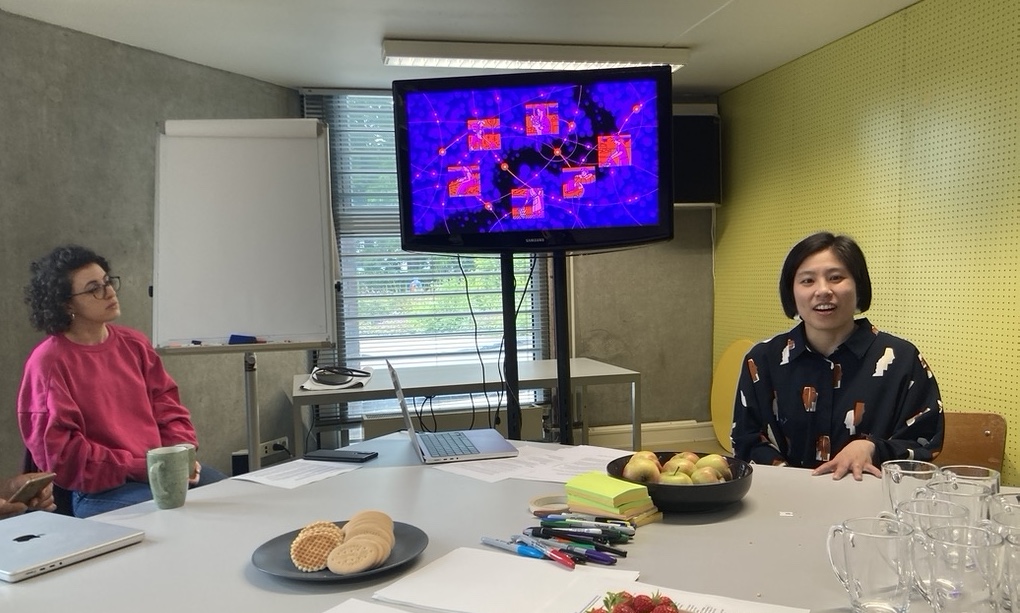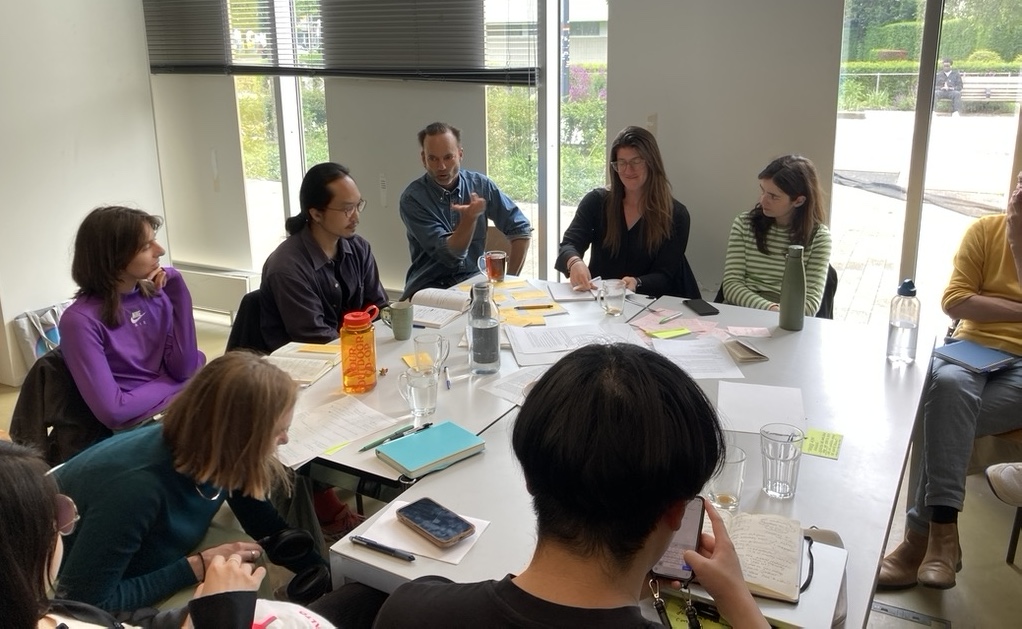Last Thursday and Friday, we got together at Nieuwe Instituut for a panel and workshop on Relational Interfaces. The event was co-organized with Fang-jui and Calvin Po from Dark Matter Lab, and departed from their work on Radicle Civics. It took part in the context of our Charging the Commons-project. The [urban interfaces] group at the Utrecht University Focus Area Governing the Digital Society also contributed as an organizer.
In this event we explored how new types of interfaces – interactive) tools, media, protocols and organizational structures – could be designed to re-imagine / restructure relationships between humans and non-humans, from a spirit of stewardship and commoning.
Using the ‘rehearsal space for the future’ Buitenplaats Brienenoord as a case study, we explored how the island could be governed as a commons, and how stewardship could be shaped through various interfaces, taking inspiration also from HNI’s Zoop-model
For this, we looked at three types of interfaces:
- Representation Interfaces: More-than-humans which have been transformed from objects into agents might not be able to participate in human-created systems. What kind of interfaces are needed to allow them to be represented by human stewards, or represent themselves?
- Empathic Interfaces: Complex systems are often unintuitive to understand. How can we use empathy, storytelling, non-verbal communication to help humans intuit the complexity of relationships in the system?
- Mediation Interfaces: Actions taken by an individual might have an impact across many agents. How can we facilitate the negotiation across many agents? How can we create mediators to make this less unwieldy?
Thanks to all participants for their insightful contributions, and especially to Aiwen Yin for also sharing her experiences with designing Liquid Dependencies through the Next Kin Foundation as a relational interface during the panel.




